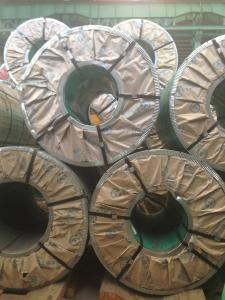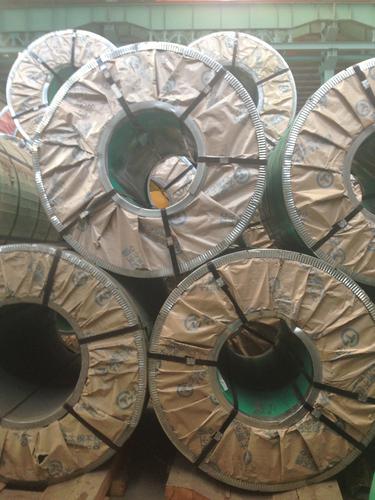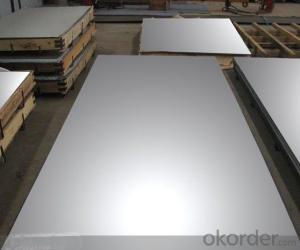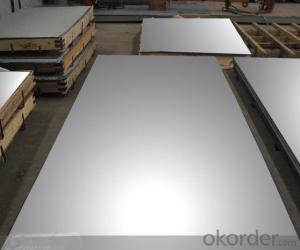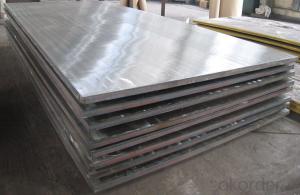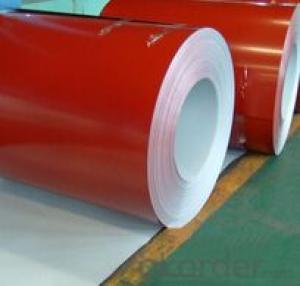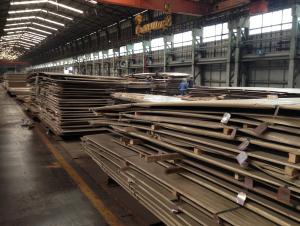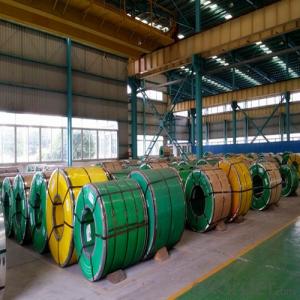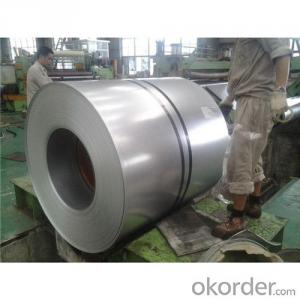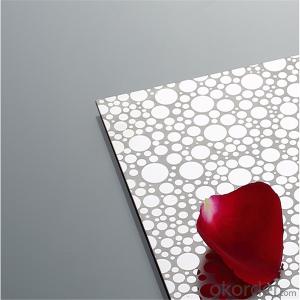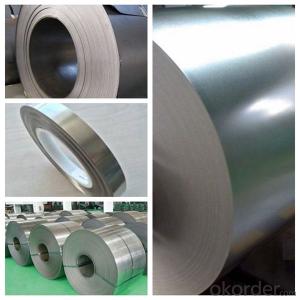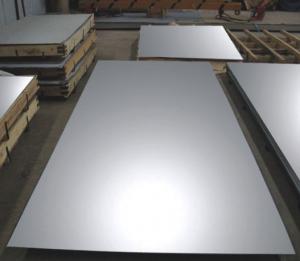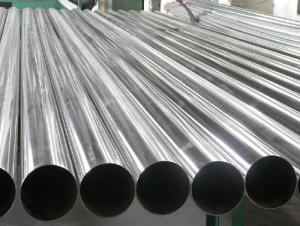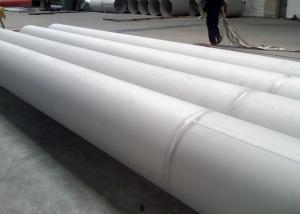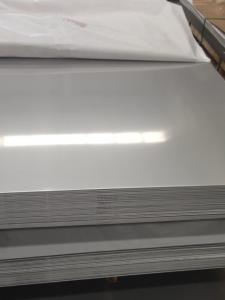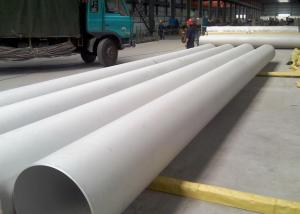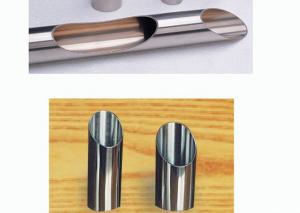Stainless Steel Coill And Roll Stocks With Best Price
- Loading Port:
- Shanghai
- Payment Terms:
- TT or LC
- Min Order Qty:
- 5 m.t.
- Supply Capability:
- 5000 m.t./month
OKorder Service Pledge
OKorder Financial Service
You Might Also Like
1.Structure of Product Description
we are one global 500 Enterprise, with fully-automic production line, we can produce stainless steel sheet, stainless steel coil, Stainless steel c. chich are widely used in the field of construction field and decoration field, etc. The detailed grade are as follows: 201, 202, 301, 304, 316, 410, 420, 430, etc.
The surface is including 2B, BA, Mirror Finish, Checkered, etc.
2. Main features of the product
a. Competitive price
b. Frist-Class Service.
c. Shortest service.
3. Image.
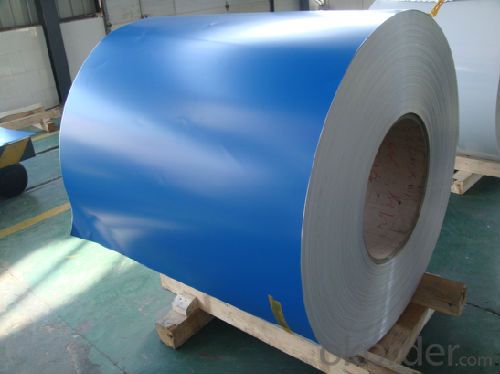
4. Product detailed sizes:
1000mm*2000mm,1500mm*3000mm, etc.
5. FAQ:
What is the quality standard?
---Usually our standard is GB3880-2006 or else.
What is the width range?
---It is from 1000mm to 2500mm, etc.
What is the length range?
---It is from 2000mm to 6000mm, etc.
What is the MOQ for your products yet?
---Normally it is around 3 tons/each size.
How many tons did you export in one year?
---Normally it is around 9000 tons totally.
Where is your client from?
---Normally it is from Japan, USA, ENGLISH, SINGAPORE, ETC.
What is your mainly products?
---Normally they are stainless steel sheet, stainless steel coil, stainless steel checkered sheet, stainless steel mirror finished sheet, color coated stainless steel sheet, etc.
How many times will you import from China in each year ?
---Looking forward to hearing from your news later.
- Q: How do you prevent discoloration on stainless steel sheets?
- There are several steps you can take to prevent discoloration on stainless steel sheets. Firstly, it is essential to clean the surface regularly. Use mild soap or detergent with warm water and avoid abrasive cleaners or scrubbing pads that can cause scratches. Secondly, avoid using harsh chemicals or cleaners that contain chlorine, bleach, ammonia, or acids. Stick to mild and non-abrasive cleaners specifically made for stainless steel. After cleaning, make sure to rinse the sheet thoroughly with clean water to remove any residue from the cleaning solution. Residual chemicals can cause discoloration if left on the surface for too long. It is important to dry the stainless steel sheet completely after cleaning and rinsing. Moisture left on the surface can lead to water spots or staining, especially in areas with hard water. Use a soft cloth or towel to remove all moisture and ensure a dry and shiny surface. Applying protective coatings or sealants designed for stainless steel can help prevent discoloration. These coatings create a barrier that protects the surface from environmental factors like humidity, oxidation, and staining. Proper handling and care are also crucial. Avoid dragging or sliding objects across the sheets to prevent scratches or abrasions that may lead to discoloration. Handle the sheets with care, using clean gloves or a soft cloth to minimize the risk of surface damage. Regularly inspect the stainless steel sheets for any signs of discoloration or damage. Address any issues promptly by following the appropriate cleaning and maintenance procedures to prevent further damage and maintain the appearance of the stainless steel. By following these preventive measures, you can effectively minimize discoloration on stainless steel sheets and keep them looking clean, shiny, and free from stains for a longer period of time.
- Q: How do you prevent warping or distortion in stainless steel sheets?
- To prevent warping or distortion in stainless steel sheets, several measures can be taken. First, it is important to properly handle and store the sheets to prevent any bending or twisting during transportation or storage. Secondly, ensuring a smooth and even distribution of heat during welding or fabrication processes can help minimize the chances of warping. Additionally, using proper clamping techniques and supports during machining or cutting operations can help maintain the shape and integrity of the stainless steel sheets. Lastly, adhering to the recommended thicknesses and specifications provided by the manufacturer for specific applications can also help prevent warping or distortion in stainless steel sheets.
- Q: What is the price per square foot for stainless steel sheets?
- The price per square foot for stainless steel sheets can vary depending on various factors such as the grade, thickness, finish, and supplier. On average, stainless steel sheets can range from $3 to $10 per square foot. However, high-quality and specialty stainless steel sheets can be priced higher, reaching up to $20 or more per square foot. It is important to consider these factors and shop around to find the best price for your specific requirements.
- Q: Are stainless steel sheets suitable for desalination plants?
- Yes, stainless steel sheets are suitable for desalination plants. Stainless steel is highly resistant to corrosion and can withstand the harsh conditions found in desalination plants, such as exposure to saltwater and high temperatures. It has excellent durability and mechanical properties, making it ideal for use in various components of desalination plants, including piping, heat exchangers, and tanks. Stainless steel also has good hygiene properties, making it suitable for desalination plants that require strict cleanliness standards. Additionally, stainless steel sheets can be easily fabricated and installed, allowing for efficient construction and maintenance of desalination plants.
- Q: Are stainless steel sheets suitable for food processing?
- Yes, stainless steel sheets are highly suitable for food processing. Stainless steel is a strong and durable material that is resistant to corrosion, heat, and chemical damage. It is non-reactive with food, which ensures that it will not affect the taste or quality of the processed food. Additionally, stainless steel is easy to clean and maintain, making it a hygienic choice for food processing environments.
- Q: What are the common sizes of stainless steel sheets?
- The sizes of stainless steel sheets can vary depending on the industry and application. However, there are standard sizes readily available in the market. For example, stainless steel sheets usually have thicknesses ranging from 0.4mm to 3.0mm. The most commonly found widths are 1000mm, 1219mm, and 1500mm, while the most frequently seen lengths are 2000mm, 2438mm, and 3000mm. These dimensions are commonly known as 4x8 (4 feet by 8 feet), as they are the standard size for stainless steel sheets used in construction and fabrication projects of various kinds. It is important to mention that stainless steel sheets can also be custom-cut to precise dimensions according to the requirements of a specific project. This allows for greater flexibility and ensures that the sheets fit perfectly for their intended application.
- Q: What is the maximum length available for stainless steel sheets?
- The maximum length for stainless steel sheets can differ based on the supplier and the grade of stainless steel in question. Typically, stainless steel sheets can be found in lengths that span from 96 inches (8 feet) to 240 inches (20 feet). In certain circumstances or upon request, suppliers may provide even lengthier sheets, reaching up to 300 inches (25 feet) for particular applications. To ascertain the maximum length available for the specific stainless steel sheet you need, it is crucial to consult with the supplier.
- Q: Can stainless steel sheets be used for water filtration?
- Yes, stainless steel sheets can be used for water filtration. Stainless steel is known for its corrosion resistance, durability, and ability to withstand high temperatures, making it a suitable material for water filtration applications. Stainless steel sheets can be formed into various filter elements such as screens, mesh, or cartridges, which efficiently remove impurities and contaminants from water. The fine mesh size of stainless steel sheets allows for effective filtration while maintaining a high flow rate. Additionally, stainless steel is non-reactive and does not release harmful substances into the filtered water, ensuring its safety for consumption. Overall, stainless steel sheets are a reliable choice for water filtration due to their excellent mechanical properties and resistance to corrosion.
- Q: Do stainless steel sheets require any special handling during installation?
- Yes, stainless steel sheets do require special handling during installation. Here are a few important considerations: 1. Avoid Contamination: Stainless steel is prone to contamination from various sources, such as carbon steel, dirt, or grease. It is crucial to ensure that the installation area is clean and free from any potential contaminants. Tools used during installation should also be clean and free from other metals. 2. Protection from Scratches: Stainless steel sheets are susceptible to scratching during installation. It is important to handle them with care and use protective coverings or wraps to prevent any scratches or damage. Additionally, using non-abrasive tools and avoiding dragging or sliding the sheets across surfaces can help maintain their integrity. 3. Proper Fixing Techniques: Stainless steel sheets are typically secured using mechanical fasteners or adhesives. It is essential to follow the manufacturer's recommendations or industry best practices for the specific installation method. This includes using the correct type and size of fasteners and ensuring they are properly tightened without over-torquing, which can cause damage. 4. Expansion and Contraction: Stainless steel sheets can expand or contract with changes in temperature. During installation, it is necessary to allow for this movement by providing adequate clearance or using expansion joints where required. Failing to account for thermal expansion can lead to buckling, warping, or stress on the sheets. 5. Avoiding Galvanic Corrosion: Stainless steel sheets should not come into direct contact with dissimilar metals, especially those with higher galvanic potential, as it can cause galvanic corrosion. Using compatible materials and insulating stainless steel sheets from direct contact with other metals can help prevent this type of corrosion. By following these special handling guidelines, stainless steel sheets can be installed correctly, maintaining their aesthetic appeal and durability over time.
- Q: What does 8K stainless steel mean?
- The literal definition of 8K: the composition of the alloy corrosion resistance of stainless steel white just depends on its (Cr, Ni, Ti, Si, Mn) and internal organizational structure, which play a decisive role is chromium, it can form a passivation film on the surface of the steel, the metal isolation does not produce oxidation and enhance the ability of corrosion resistance of steel plate. In 8K, the "8" refers to the proportion of ingredients containing alloy (304 stainless steel mainly refers to the content of Ni element), "K" refers to after polishing after the reflectance grade (grade K grade mirror). 8K mirror, that is, chrome nickel alloy steel reflects the mirror level.
Send your message to us
Stainless Steel Coill And Roll Stocks With Best Price
- Loading Port:
- Shanghai
- Payment Terms:
- TT or LC
- Min Order Qty:
- 5 m.t.
- Supply Capability:
- 5000 m.t./month
OKorder Service Pledge
OKorder Financial Service
Similar products
Hot products
Hot Searches
Related keywords
